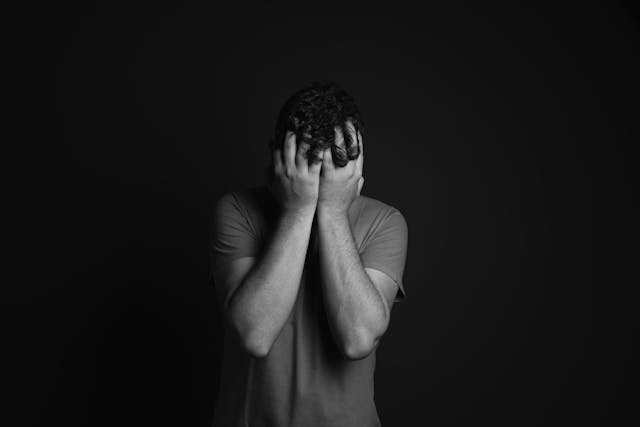Mental health disorders are very common now a days, but many people don’t realize they’re struggling until things get worse. A study shows that 60 to 70 million people in India are suffering from Mental Health Disorders. The good news is that spotting the early signs can help you take action and feel better sooner. Small changes in mood, behavior, or daily routines can be early clues that something isn’t right. In this blog, we’ll talk about the early symptoms of mental health disorders, how to recognize them, and simple tips to stay mentally healthy. Taking care of your mind early can make a big difference in your overall well-being.

Common Early Symptoms of Mental Health Disorders
Changes in Mood
You might feel sad, angry, or upset for no clear reason. Sometimes, your mood can change really quickly, going from happy to mad or worried. These changes can make it hard to enjoy things you normally like to do.
Behavioral Shifts
You may start acting differently, like not wanting to hang out with friends, not doing things you used to enjoy, or getting upset more easily. These changes in how you act can be a sign that something is wrong.
Physical Symptoms
Mental health problems can make you feel physically sick, like having headaches, feeling really tired, or having trouble sleeping. These feelings might not go away, even if you rest or take medicine.
Social Withdrawal
You might feel like staying away from friends, family, or even school. It can feel hard to be around people, and you may want to spend more time alone. This can make you feel more lonely, which can make things worse.
Difficulty Concentrating
If you find it hard to pay attention, remember things, or finish your work, it could be a sign that something is bothering you. You might feel distracted or forgetful, which can affect your schoolwork or activities.

How to Recognize Early Warning Signs
Self-Observation
Look at how you’re feeling and acting. If you notice you’re feeling sad, tired, or upset more often than usual, it could be a sign something is wrong. If you feel different, like not enjoying things you normally do, it’s important to notice these changes.
Monitoring Loved Ones
Sometimes, it’s easier to see if someone else is acting different. If a friend or family member seems quiet, angry, or doesn’t want to be around people, they might need help. It’s good to check in on them and make sure they’re okay.
When to Seek Professional Help
If you or someone you know feels upset or behaves differently for a long time, it’s time to talk to a doctor or counselor. They can help figure out what’s going on and give advice on how to feel better. It’s important to ask for help if things aren’t improving.

Prevention Tips for Mental Health Disorders
Building Healthy Lifestyle Habits
Taking care of your body is important for feeling good in your mind too. Eating healthy foods, sleeping well, and moving your body by playing or exercising can help you feel happy and strong. These habits help you feel better and handle tough times.
The Importance of Social Connections
Spending time with friends and family is really good for your mental health. Talking to people you care about, sharing your thoughts, and having fun together can make you feel happy and less lonely.
Stress Management Techniques
Everyone feels stressed sometimes, but it’s important to learn ways to feel better. You can try things like taking deep breaths, going for a walk, or doing something you like, like drawing or listening to music, to help you feel calm.
Seeking Help Early
If you’re feeling sad or worried for a long time, it’s good to talk to someone. You can talk to a teacher, a parent, or a doctor to get help. Asking for help early can help you feel better faster and stop things from getting worse.

When and How to Get Help
Recognizing When Professional Support is Needed
If you’ve been feeling sad, anxious, or upset for a long time and it’s making it hard to do everyday things, it’s important to get help. If your feelings are too strong or hard to handle on your own, talking to a professional can help you feel better and learn ways to cope.
Types of Mental Health Professionals
There are different types of professionals who can help you with mental health. A counselor or therapist can talk to you and help you understand your feelings. A psychiatrist is a doctor who can help with medicine if you need it. Psychologists help you work through problems and emotions, and social workers can help you find resources for support.
How to Talk About Mental Health
Talking about mental health might feel hard, but it’s really important. You can start by talking to someone you trust, like a parent, teacher, or friend. You might say something like, “I’ve been feeling really sad or worried lately, and I need help.” This can start a conversation and help you get the support you need.
Here is an article discussing overcoming depression that would help you handle depression easily. Visit Here
